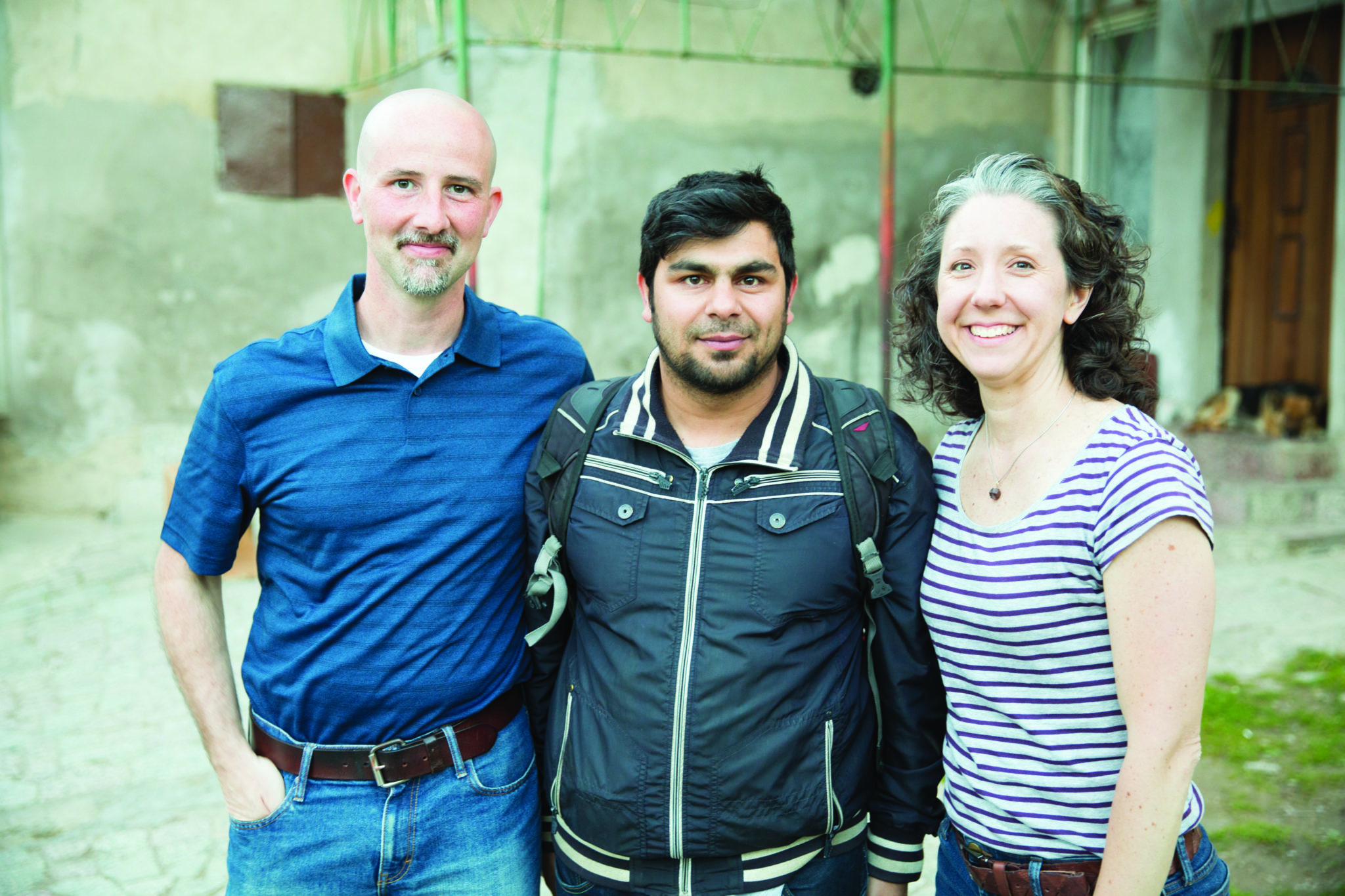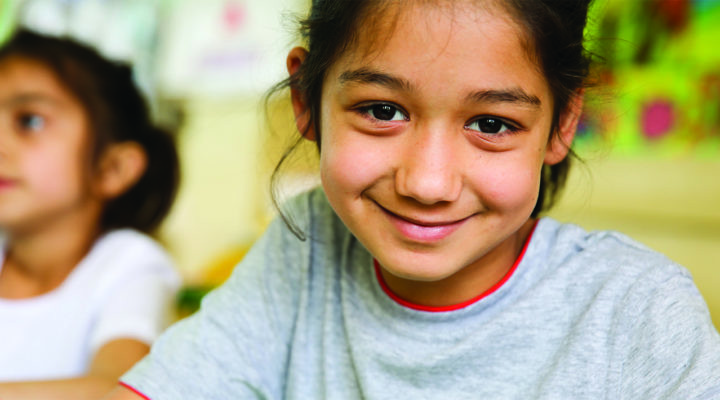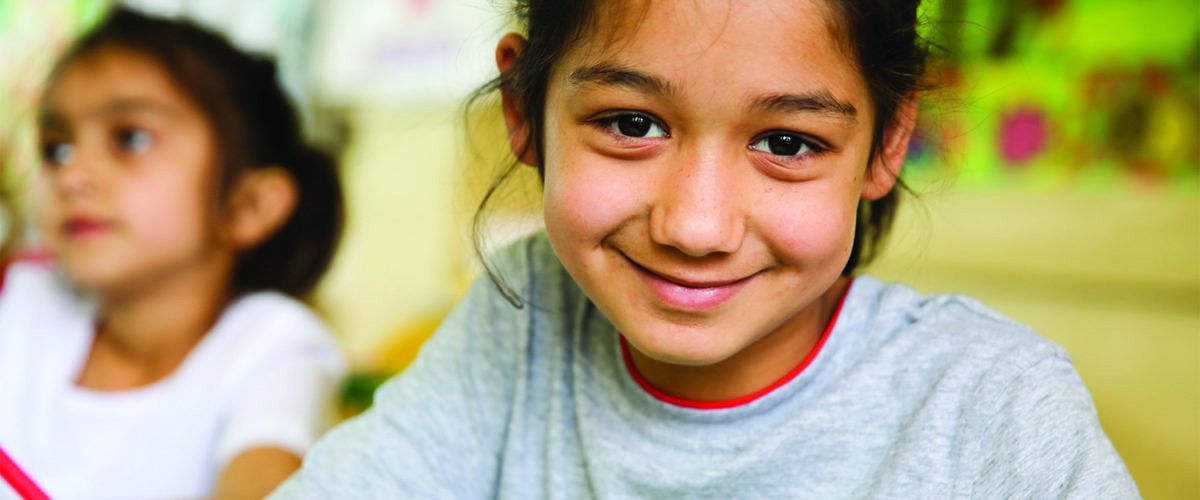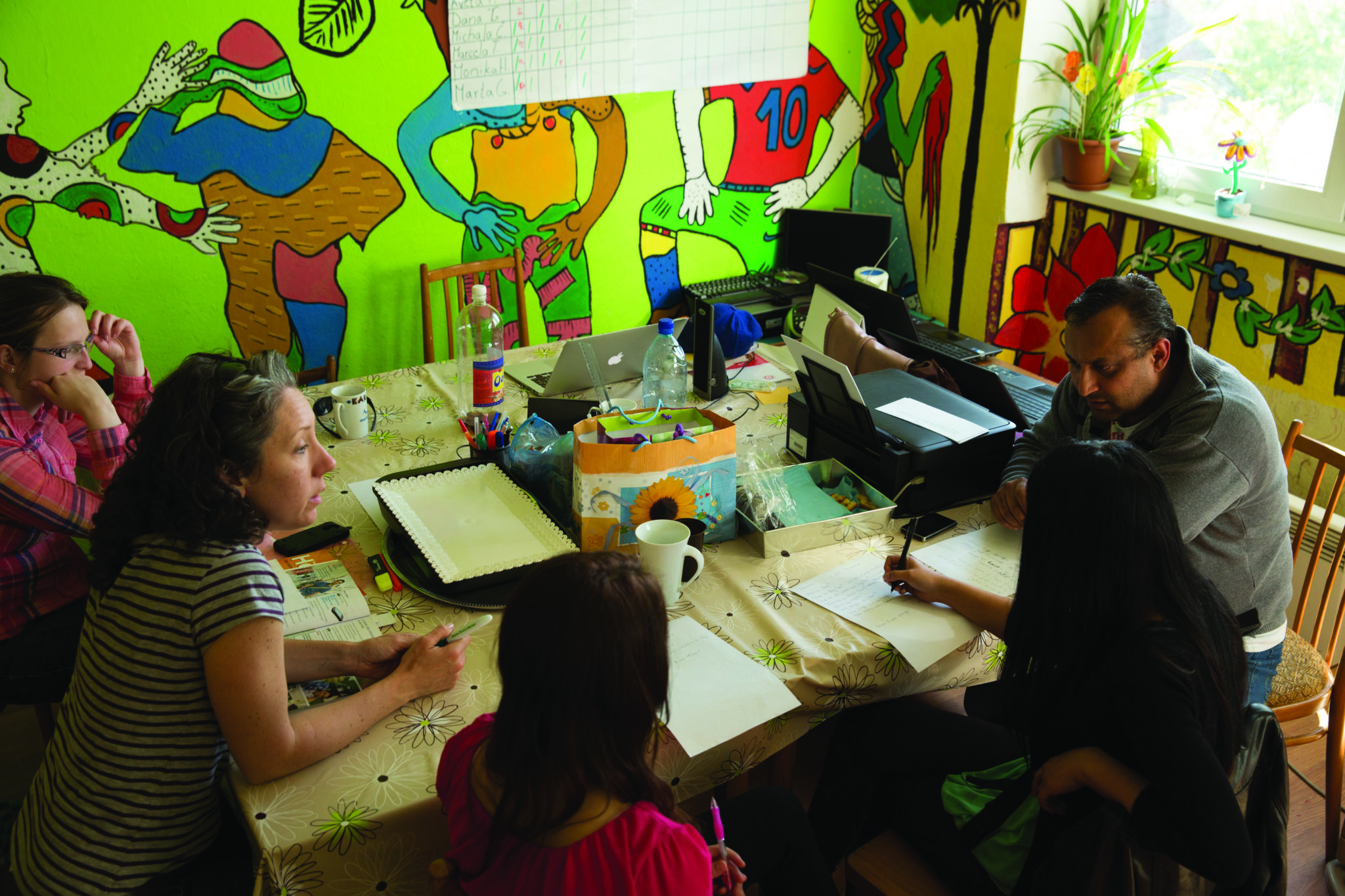Imagine illiterate first-grade students excited about learning to read. Then picture them learning, on the first day of school, that their teachers and fellow students are speaking and writing in a different language altogether.
It doesn’t take them long to fall behind and, ultimately, to have to leave school, hopes dashed.
“This is the fundamental problem for Roma children in Slovakia,” said Anna Koptova, founder of an elementary school for Roma children in Košice, Slovakia. “The Slovak system of schooling and education does not offer conditions necessary for Roma students to handle school like Slovak children.”

CBF field personnel Jon and Tanya Parks (pictured left and right) partner with local schools and organizations in Košice, Slovakia, to teach and empower Roma children and adults. (CBF photos)
The language barrier is immense. The Roma children who come to the first grade and do not speak the teaching language of Slovak well enough to succeed, Koptova said. They only speak the Romani language.
“This communication barrier is so vast that the child cannot cope with it during his or her years in elementary school,” she said. “So, that student is not only unlikely to finish school, but he or she will never come to know who they are, have self-esteem or pride or integrate into Slovak society.”
This is why Cooperative Baptist Fellowship field personnel Jon and Tanya Parks are working with Koptova’s school and other learning communities to share Christ’s love through literacy ministry in Košice. With support from the CBF Offering for Global Missions, the Parks and their partners are providing education and literacy training in the Romani and Slovak languages.
Through honoring the Romani language and culture in the education process, the Parks and educators are teaching Roma students not only Romani, Slovak and even English, but also equipping them with the confidence and tools to emerge from poverty into greater economic opportunity in Košice.
Roma communities are concentrated primarily in the eastern part of the country, comprising the second-largest ethnic minority in Slovakia, and live one of the most ostracized existences in the world, Tanya Parks said.
The European Roma Rights Center considers the situation in Slovakia to be one of the worst in Europe, primarily characterized by educational discrimination, threats, violence and even forced sterilization. In 2012, a United Nations Development Program survey discovered that 43 percent of Roma students in mainstream schools attended ethnically-segregated classes.
“The relationship between Slovaks and Roma is a long and deep one, and the longer we are here, the more deep we realize the situation is,” Tanya Parks said.
“But we believe that education and literacy is such an important piece of Roma communities picking themselves up out of poverty and asserting a vital position in society,” she added. “We believe that education in their own language,… in the Slovak language and then also in English are three important ways for them to have a leg up, to get better jobs, to speak as educated people and see discrimination begin to change.”
Koptova’s school now partners with CBF through the Parks’ commissioning in Slovakia and was the first school in Košice to implement elementary education in the Romani language. Since its founding in 2006, the school has taught elementary education, including math, science, social studies, reading and language skills to Roma children in their heart language. In addition to teaching preschool and kindergarten students in Košice, the Parks also convene a class of 9- and 10-year-olds in a local village, providing Slovak and English lessons, crafts, games, songs and Bible literacy in each setting.
Jessica Rivarova is a fourth-grade student at Koptova’s school and aspires to be a nurse when she is older because she loves to care for people. Roma people are exceptional because they know how to have fun, to dance, to sing beautifully and to paint stunning works of art, she said.
Conditions in Rivarova’s neighborhood in Košice are hardly conducive to education, so her parents encourage her to go to school and study for her advancement tests.
“Education is important because with it we can help people move beyond where they are now, and then those people will help others and so on,” Rivarova explained.
“For Roma kids, reading is very important because almost no one reads as well as
non-Roma kids our age. I think that by learning, I can achieve more and get better too. My family is very important to me, especially my mom and dad, because they take good care of me and encourage me to go to school.”
In addition to children, the Parks are also serving their adult neighbors through literacy ministry in Roma communities. Each week, they host classes in a nearby village for Roma adults seeking to learn English and build their international opportunities for employment. Through beginner, intermediate and advanced language cohorts, adult students not only improve their English skills but even teach the American couple as they are learning Slovak and Romani.
One of those students and partners is Július Pecha, a Roma social worker who desires to learn English in order to improve his communication at international social work conferences.
Once a week, Pecha and 10 of his classmates gather for the advanced English class with the Parks. But Pecha said it is the informal, relaxed setting in which they are learning that makes him love English classes and allows everyone to be transformed.
“Faith and the love of God are two things nobody can take away from Roma,” Pecha said.
Partnering with churches and individuals through the CBF Offering for Global Missions, Jon Parks said, is actually what helps keep them most in tune with what God is doing in Slovakia and around the world.
“We have more faith in God to provide for our needs when we know that our work and ability to stay here depends on people’s jobs back home and depends on people continuing to stay connected with what we do,” he said.



